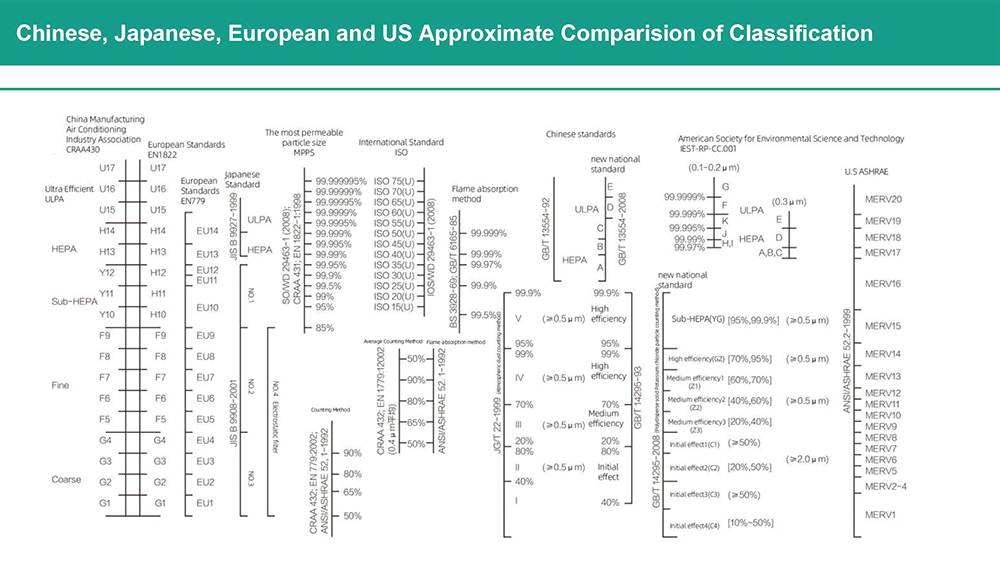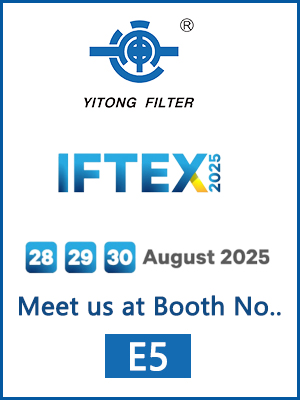 December 12, 2023
December 12, 2023
Air quality concerns have prompted various countries to establish standards and classifications for air filters, aiming to mitigate the impact of airborne pollutants. The categorization and efficiency standards vary worldwide, leading to diverse approaches to air filtration.
United States
In the United States, the High-Efficiency Particulate Air (HEPA) classification reigns supreme. HEPA filters capture 99.97% of particles sized 0.3 microns or larger. The classification extends further to H13 HEPA filters, with even higher efficiency, capturing minuscule particles that could include viruses and bacteria.
European Union
The European Union adopts a similar approach, employing the European standard EN 1822 for air filters. The EU filter classes include E10 to U17, with U17 being the most efficient. These classifications align with HEPA standards but offer a broader spectrum by accounting for an extended range of particle sizes.
China
China has its national standards, including the GB/T 6165-2008, which classifies air filters based on efficiency and usage. The classes range from E1 to E11, with E11 being akin to HEPA filters in capturing 95% of particles as small as 0.3 microns.
Japan
Japan employs its filtration standards, often referred to as JIS (Japanese Industrial Standards). The classes range from F7 to F9, differing from HEPA classifications but aiming for similar efficiency in filtering out pollutants.
Efficiency Contrasts and Global Perspectives
While these classifications align in purpose, the variances in terminology and particle size specifications can lead to confusion. For instance, a filter labeled as HEPA in one country might not meet similar criteria in another. This discrepancy could affect global trade and cross-border product utilization.
Moreover, differing standards create challenges for multinational corporations aiming for standardized product lines worldwide. Manufacturers must navigate these diverse regulations, often tailoring products to meet specific country standards.

Looking Ahead
Harmonizing global air filter standards could streamline trade, enhance consumer understanding, and promote a more consistent approach to air quality management worldwide. A unified classification system, coupled with stringent efficiency benchmarks, could advance air filtration technology and contribute significantly to combating air pollution on a global scale.
In conclusion, while various countries prioritize air quality through their filtration standards, the differences in classifications and efficiency measures underscore the need for a more unified approach. Achieving standardized air filtration classifications across nations could lead to a more concerted effort in battling air pollution and ensuring cleaner, healthier environments for all.

